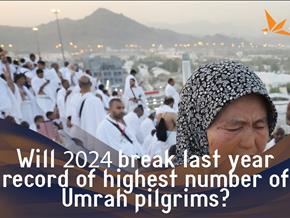
Jeddah, Saudi Arabia – In a significant leap forward for digital connectivity during the sacred pilgrimage, international Hajj pilgrims can now activate eSIMs remotely in Saudi Arabia. This groundbreaking initiative, launched by the Communications, Space and Technology Commission (CST) in collaboration with the Ministry of Interior (MoI) and licensed telecom operators, offers immediate digital connectivity upon arrival in the Kingdom, eliminating the need for physical SIM cards or visits to telecom service centers. This move is particularly impactful for the millions of Muslims who undertake the annual Hajj pilgrimage, streamlining their communication needs and allowing them to focus on their spiritual journeyThis article delves into the intricacies of this new eSIM activation service, exploring its benefits, the activation process, the role of the "Absher" platform, and the broader implications for the Hajj and Umrah experience, aligning with Saudi Arabia's Vision 2030.
1. The Digital Leap: Remote eSIM Activation for Hajj Pilgrims
The ability to activate eSIMs remotely is a transformative development for international Hajj pilgrims. Traditionally, arriving pilgrims would need to purchase a physical SIM card, often involving waiting in queues at airports or mobile shops, and then undergoing a manual activation process. This new digital service bypasses these inconveniences entirely, providing a seamless and instant connection.
1.1. What is an eSIM?
Before delving into the activation process, it's essential to understand what an eSIM is. An eSIM, or embedded SIM, is a digital SIM card that is built directly into a compatible device, such as a smartphone, tablet, or smartwatch. Unlike traditional physical SIM cards, an eSIM does not require a physical slot and can be provisioned and activated digitally. This means users can switch between mobile networks or activate new plans without needing to swap out a tiny physical card. For international pilgrims, this technology offers unparalleled convenience and flexibility.
1.2. The Joint Initiative: A Collaborative Effort
The successful implementation of remote eSIM activation is a testament to a collaborative effort between key Saudi Arabian government bodies and the private sector. The Communications, Space and Technology Commission (CST), responsible for regulating the telecommunications sector, has spearheaded this initiative. They have worked closely with the Ministry of Interior (MoI), which plays a vital role in pilgrim management and security, and the various licensed telecom operators in Saudi Arabia. This tripartite collaboration ensures that the service is not only technologically sound but also secure and fully integrated with existing pilgrim identification and verification systemsThis joint effort underscores Saudi Arabia's commitment to leveraging technology to enhance the pilgrim experience, providing efficient and modern services in line with its ambitious Vision 2030 goals.
2. Seamless Connectivity from Arrival: The Activation Process
The core benefit of this new service is its ability to provide immediate digital connectivity to international Hajj pilgrims as soon as they arrive in the Kingdom. The activation process is designed to be user-friendly and efficient, primarily relying on mobile applications and biometric verification.
2.1. Requesting and Activating the eSIM
Pilgrims can now request eSIM cards from local mobile service providers directly through their respective applications. This means that even before leaving their home country, or immediately upon landing, pilgrims can initiate the process from their smartphones. The key steps involved are:
- Downloading the Telecom Operator's App: Pilgrims download the official mobile application of a licensed Saudi telecom provider (e.g., STC, Mobily, Zain).
- eSIM Plan Selection: Within the app, pilgrims can browse and select an eSIM package that suits their data and communication needs for the duration of their Hajj stay. Many providers offer tailored plans for pilgrims, focusing on data, local calls, and even international minutes.
- Biometric Verification via "Absher" Platform: This is the crucial step for secure remote activation. The pilgrim's identity is verified digitally through the "Absher" platform, a widely used government e-services platform in Saudi Arabia. This typically involves using facial recognition or fingerprint scanning to match the pilgrim's biometric data with their registered information. This integration ensures a high level of security and authenticity in the activation process, replacing the need for in-person biometric capture at a physical store.
- Digital Activation: Once the biometric verification is successful, the eSIM profile is digitally downloaded and activated on the pilgrim's compatible device. This typically involves scanning a QR code provided by the service provider, which then installs the eSIM on the device.
This streamlined process significantly reduces waiting times and allows pilgrims to stay connected from the moment they step off the plane, whether it's for contacting family, accessing essential Hajj applications, or navigating the holy sites.
2.2. The Role of the "Absher" Platform
The "Absher" platform is central to the secure and efficient eSIM activation. As a comprehensive digital portal for various government services in Saudi Arabia, Absher ensures that identity verification for eSIM activation is robust and reliable. Its integration means:
- Secure Identity Verification: Pilgrims' identities are verified against official government databases, enhancing security and preventing fraudulent activations.
- Convenience: Pilgrims can use their existing Absher accounts or easily register if they don't have one, leveraging a platform they might already be familiar with for other travel-related services.
- Reduced Bureaucracy: The digital verification through Absher minimizes paperwork and eliminates the need for manual identity checks by telecom staff.
3. Benefits of eSIM for International Hajj Pilgrims
The shift to eSIM activation offers a multitude of benefits for international Hajj pilgrims, enhancing their overall experience during this spiritual journey.
3.1. Immediate Connectivity and Convenience
- Instant Access: Pilgrims gain immediate access to mobile data and communication services upon arrival, without the delay of purchasing and activating a physical SIM card. This is particularly crucial for essential communication with Hajj group leaders, family back home, or emergency services.
- No Physical SIM Swapping: Eliminates the hassle of fumbling with tiny physical SIM cards, which can be easily lost or damaged. This is especially beneficial for pilgrims who may not be accustomed to managing multiple SIMs or have dexterity issues.
- Remote Activation: The ability to activate eSIMs remotely means pilgrims can set up their connectivity even before leaving their home country, or from the comfort of their accommodation, focusing more on their pilgrimage.
- Multi-Network Flexibility: Some eSIM providers allow users to switch between different local networks to ensure the best coverage, especially in crowded areas like the Grand Mosque or Mina campsite.
3.2. Cost-Effectiveness and Transparency
- Avoid Roaming Charges: By activating a local eSIM plan, pilgrims can avoid exorbitant international roaming charges from their home country's mobile operator. This offers significant cost savings.
- Tailored Data Plans: Local telecom providers often offer specialized eSIM packages for Hajj and Umrah pilgrims with varying data allowances and validity periods, ensuring pilgrims only pay for what they need.
- Real-time Usage Monitoring: Many eSIM apps allow pilgrims to monitor their data usage in real-time, helping them manage their expenses and top up if necessary.
3.3. Enhanced Safety and Navigation
- Emergency Communication: Immediate connectivity ensures pilgrims can make emergency calls or contact their Hajj mission in case of any unforeseen circumstances.
- Navigation and Maps: Access to online maps and navigation apps (like Google Maps or local alternatives) is crucial for navigating the vast and often crowded areas of Makkah and Madinah, especially for pilgrims unfamiliar with the layout.
- Real-time Updates: Pilgrims can receive critical real-time updates regarding crowd management, prayer times, transportation schedules, and other important announcements from Hajj authorities.
- Nusuk App Integration: The Nusuk app, a comprehensive platform for Hajj and Umrah pilgrims, often integrates with mobile connectivity options. A working eSIM facilitates seamless use of Nusuk for booking services, guidance, and managing pilgrimage permits.
3.4. Communication and Sharing
- Staying Connected with Loved Ones: Pilgrims can easily communicate with family and friends back home through messaging apps (WhatsApp, etc.), voice calls, and even video calls, sharing their spiritual journey.
- Social Media Sharing: For those who wish to document their experience, a reliable internet connection allows for sharing photos, videos, and live updates on social media platforms.
- Access to Information: Pilgrims can easily access religious texts, lectures, and other informative content online that can enhance their spiritual experience.
4. Major Telecom Operators and eSIM Plans in Saudi Arabia
Saudi Arabia has a robust telecommunications infrastructure with three major carriers that offer eSIM services:
- STC (Saudi Telecom Company): The largest telecommunications provider in Saudi Arabia, offering extensive coverage across the Kingdom, including holy sites. STC provides various eSIM plans for both individuals and businesses.
- Mobily: Another major player in the Saudi telecom market, Mobily also offers eSIM services with competitive data and voice plans.
- Zain KSA: Known for its innovative services and strong network presence, Zain KSA is also a key provider of eSIMs for visitors, including pilgrims.
Several global and specialized eSIM providers also offer plans specifically tailored for travelers to Saudi Arabia, including options for Hajj and Umrah pilgrims. These providers often offer flexible data packages for varying durations.
Table 1: Key Features of eSIM Plans for Pilgrims (General)
| Feature | Description |
|---|---|
| Data Allowance | Ranging from a few GBs for light users to unlimited data plans for heavy usage, often with options for 4G/5G speeds. |
| Validity Period | Plans are typically available for 7, 15, or 30 days, aligning with the duration of the Hajj pilgrimage. |
| Voice/SMS | Some plans include local calls and SMS, while others are data-only. International calls are usually an add-on or via VoIP apps. |
| Network Coverage | Ensuring strong and reliable coverage in key pilgrimage areas like Makkah, Madinah, Mina, and Muzdalifah. |
| Activation Process | Primarily digital, often via QR code scan, coupled with biometric verification through the "Absher" platform or similar secure methods. |
| Pricing | Competitive pricing, often more economical than international roaming. Plans can start from a few dollars for basic data to over a hundred for unlimited data and longer validity. |
| Compatibility | Requires an eSIM-compatible device (e.g., newer iPhone models, Samsung Galaxy S series, Google Pixel phones, etc.). Pilgrims are advised to check their device compatibility before traveling. |
Export to Sheets
5. Saudi Arabia's Vision 2030 and Digital Transformation
The introduction of remote eSIM activation for Hajj pilgrims is a clear manifestation of Saudi Arabia's ambitious Vision 2030 plan. A core pillar of Vision 2030 is to enhance the services and facilities for pilgrims, aiming to accommodate a significantly larger number of visitors for Hajj and Umrah annually. Digital transformation is central to achieving this goal.
5.1. Enhancing the Pilgrim Journey
The government's commitment to making the Hajj journey more comfortable, efficient, and spiritually enriching is evident in this and other digital initiatives. By providing seamless connectivity from the moment of arrival, pilgrims are better equipped to navigate their spiritual journey, access essential information, and stay in touch with their support networks. This focus on digital solutions is a key strategy for managing the logistics of millions of pilgrims, improving crowd control, and enhancing overall safety.
5.2. A Smart Nation: Digital Infrastructure
This eSIM initiative also showcases Saudi Arabia's progress in building a world-class digital infrastructure. The ability to integrate telecom services with national biometric verification platforms like Absher demonstrates a sophisticated approach to digital governance and service delivery. This robust digital ecosystem is vital for supporting various smart city initiatives and improving the quality of life for residents and visitors alike.
6. Important Considerations for Pilgrims
While the remote eSIM activation offers immense benefits, pilgrims should keep a few important considerations in mind:
- Device Compatibility: Ensure your smartphone or device is eSIM compatible before traveling. Most newer flagship phones support eSIM technology.
- Pre-download Apps: It's advisable to download the relevant telecom operator apps (e.g., STC, Mobily, Zain) or third-party eSIM provider apps before arriving in Saudi Arabia.
- Internet Access for Activation: Initial eSIM activation might require a temporary internet connection (e.g., airport Wi-Fi) to download the eSIM profile.
- Absher Account: If you don't have an Absher account, familiarize yourself with the registration process, as it's crucial for biometric verification.
- Data Usage: Be mindful of data consumption, especially when streaming videos or making video calls, to avoid exhausting your plan prematurely. Many pilgrims find it useful to download offline maps or religious texts to conserve data.
- Support: Know how to contact customer support for your chosen eSIM provider in case of any issues during activation or usage.
Conclusion
The introduction of remote eSIM activation for international Hajj pilgrims in Saudi Arabia marks a significant milestone in modernizing the pilgrimage experience. This collaborative effort by the CST, Ministry of Interior, and telecom operators provides unprecedented convenience, immediate connectivity, and enhanced security for millions of pilgrims. By enabling pilgrims to seamlessly activate their eSIMs through mobile apps and biometric verification via the "Absher" platform, Saudi Arabia is not only simplifying communication but also reinforcing its commitment to leveraging technology to create a more comfortable, efficient, and spiritually fulfilling Hajj journey. As Saudi Arabia continues its digital transformation journey under Vision 2030, such innovations will undoubtedly redefine the future of the Hajj and Umrah experience.
;
More Travel News
-
 10-Apr-2025UAE Visa Policy Update - Pakistanis Can Apply for UAE 5-Year Visa Again!
10-Apr-2025UAE Visa Policy Update - Pakistanis Can Apply for UAE 5-Year Visa Again! -
 11-Aug-2023Saudi's Ministry of Hajj and Umrah Advised Pilgrims Not To Sleep at the Grand Mosque in Makkah
11-Aug-2023Saudi's Ministry of Hajj and Umrah Advised Pilgrims Not To Sleep at the Grand Mosque in Makkah -
 20-Mar-2024Only One Umrah Allowed During Ramadan
20-Mar-2024Only One Umrah Allowed During Ramadan -
 22-Apr-2025Pilgrims Strongly Urged to Comply with Saudi Hajj Rules
22-Apr-2025Pilgrims Strongly Urged to Comply with Saudi Hajj Rules -
 03-Sep-2025How to Use AI Tools to Find the Best Flight Deals in 2025
03-Sep-2025How to Use AI Tools to Find the Best Flight Deals in 2025 -
 24-Feb-2021Join Expo 2021 Dubai UAE To Get The Employment Opportunities In Dubai
24-Feb-2021Join Expo 2021 Dubai UAE To Get The Employment Opportunities In Dubai -
 13-Jul-2025Flyadeal Launches Multiple Flights from Pakistan
13-Jul-2025Flyadeal Launches Multiple Flights from Pakistan -
 19-Oct-2025Saudi Arabia Launches Home Delivery of Zamzam Water via Nusuk App, Aiming to Ease Pilgrims’ Experience
19-Oct-2025Saudi Arabia Launches Home Delivery of Zamzam Water via Nusuk App, Aiming to Ease Pilgrims’ Experience -
 08-Aug-2024Going For Umrah? Don't Take These Things With You!
08-Aug-2024Going For Umrah? Don't Take These Things With You! -
 17-Sep-2024Will 2024 break last year record of highest number of Umrah pilgrims?
17-Sep-2024Will 2024 break last year record of highest number of Umrah pilgrims? -
 06-Apr-2020After The Umrah Ban by Saudi Arabia, Hajj Ban Seems Likely
06-Apr-2020After The Umrah Ban by Saudi Arabia, Hajj Ban Seems Likely -
 19-Feb-2025Punjab Government Plans Glass Train from Islamabad to Murree: A Scenic Journey Awaits
19-Feb-2025Punjab Government Plans Glass Train from Islamabad to Murree: A Scenic Journey Awaits
